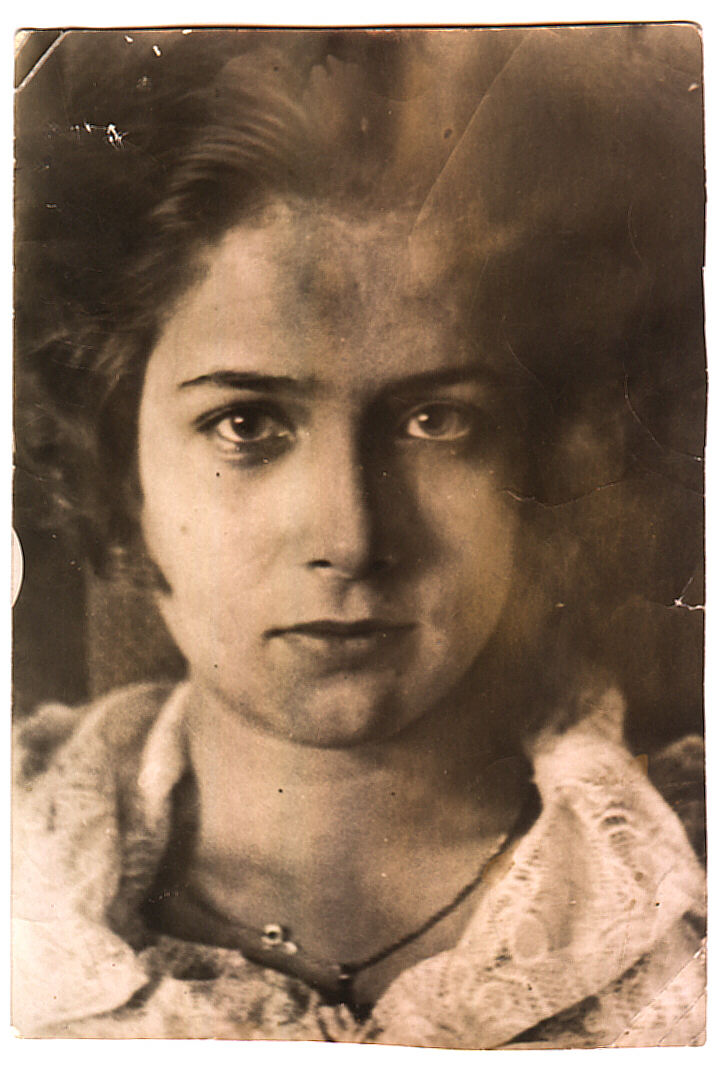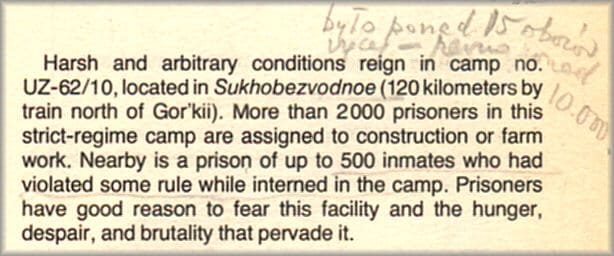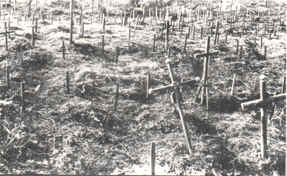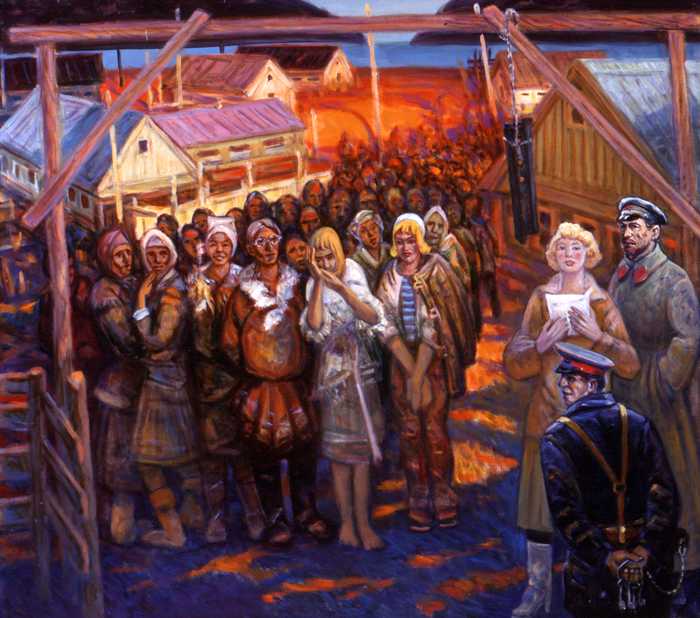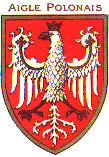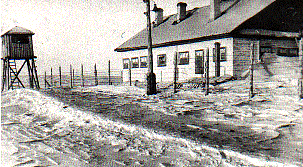Part Two – The USSR and Gulag
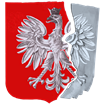
Punishment Camp Number 6
Zone-Commander Sergei Zylin (a prisoner himself) was waiting at the gate. He announced that the amnesty meant absolutely nothing to him. We would follow rules like any other prisoner, or suffer the consequences. To emphasize the severity of this camp, he slowly crushed a little mirror with his boot so that the sound of breaking glass could be heard. I kept my eyes down–it was my mirror!
This indeed was a punishment camp with a strict regimen and brutal conditions, where those who’d violated rules in other camps were sent to serve their sentence or await trial. It was feared by all prisoners and was considered a death sentence. I would survive for half a year here. The population fluctuated between 500 and 900, of whom only 25 were women. On the right side of the gate was a large bunkhouse surrounded by a wooden palisade and barbed wire in which were housed prisoners awaiting trail. I shuddered every time I looked at this forlorn building, not realizing that I would live some two months there in a tiny cell during the coldest winter months.
At the start most of the women were put to work sawing and stacking timber while a few lucky ones went to the laundry, or better yet the kitchen. Marzenka and I joined an invalid men’s brigade picking berries in the woods and fields, which was led by the Korean Dimitri Ten, a Captain of Artillery, and a decent and noble person. Our berry-hunting took us to the “Polish Cemetery” in which Poles from the so-called “volunteer” emigrations of 1940 and 1941, as well as recent prisoners, were buried in mass graves. There was a saying that anyone showing signs of swelling due to malnutrition was “setting off for the Polish cemetery.”
There were other reminders of Poles who had been exiled here as part of a “tradition” which spanned centuries, during which Polish patriots fighting Russian imperialism were deported to Siberia. The Tsar had been replaced by Stalin who did things on a much grander scale. I slept for a time on a top bunk near the ceiling where I discovered an inscription in a child’s handwriting:
“Flows the River Wisla across the Polish countryside,
And so long as it flows Poland will not perish…”
It was signed: “Zosia and Marysia, two children deported for who knows what.” Every time I lay down to to sleep I thought about these two girls.
Work and Survival
We often picked berries in icy swamp water, sometimes to our knees, wearing lapcie, shoes woven from tree-bark, which became waterlogged or stretched out of shape. Periodically Dimitri Ten would ask the guard for a rest during which a fire would be built and we’d dry our shoes and clothes. And during all this time I never even sneezed once! I later got a job in making lapcie and became quite adept at stripping and preparing the bark, and weaving it into footgear. It was nice and quiet work. I still have to this day a pair of shoes which I wove with my own hands.
During the dangerous work of extinguishing a forest fire, we discovered a growth of strange mushrooms. An old Chinese prisoner in charge of a horse team, assured us they were fine. We built a fire and roasted mushroom after delicious mushroom. But a few hours later I had diarrhea and a high fever…and became so sick that they actually allowed me a day off. But only one day and then it was back to work. Unable to eat anything, I gave my soup to Spittalow, from Lwów, who had scurvy and could barely see. She brought me kipiatok which I tried to drink. Turning to folk remedies I nibbled charcoal as an antidote, but my condition worsened. My limbs began to swell and then my whole body became bloated. Soon my feet and legs were like balloons, and my face a bag of jelly that rolled to whatever side I was sleeping on. I was faced with the isolation cell if I refused to work, but I could barely walk. I realized I was bound for the Polish cemetery and started to prepare myself for death.
But Brigade Leader Ten then assigned me to scrubbing floors in the kitchen. I was allowed to work for a few hours and then go back and rest in my bunk. I ate cereal and corn gruel with fish oil, but it didn’t help–the swelling got even worse. But what did save my life was some wild honey. One of the Russian kitchen staff, Sonia Pantalejow, traded bread and soup for it with a male forester. The honey was green and smelled of pine needles–slowly licking it in secret, I could feel it coursing through my weakened system. This saved my life, and in a few days I was back to normal, as normal as one could be in a slave-labour camp on a starvation diet with no medical care.
Freedom – But Not for Me!
In October about a dozen prisoners were freed. All men except for Wanda Krawczak who was let go because her foot infection made her a liability. I shared several camps with her, and it always turned out that she was transferred first, and the rest of us would follow. We assumed it would be the same procedure. I loaned Wanda some shoes (my swollen feet could only fit into an old pair of boots given to me by Sonja) and told her to take care of them as I’d need them for dancing–I expected to join her in freedom shortly.
Two days later a much larger list of prisoners was announced. It included all the Poles, both men and women. Except for me! I immediately ran to the camp office where the secretary, a Russian prisoner herself, could only confirm that my name was not among the lucky ones. That evening there were celebrations in the bathhouse: women at one end and the men at the other. They all had plans to join the Polish Army forming in the south. My friends laughed as they had not for years, but I sat among them like a mourner at a funeral. The women tried to cheer me up that I too would be celebrating in a day or two, but I didn’t believe them. I learned that there were other Polish prisoners being kept behind: two Poles in the punishment cells, a young Jewish lawyer from Kraków, and several Polish-Ukrainian women with heavy sentences who were re-classified as Soviets in spite of their Polish citizenship. I begged Marzenka to notify the Polish Army and other authorities to help get us out.
I returned to the barracks in a state of dejection–my heart felt like a cinder after the last flame of hope was extinguished. I lay down on my bunk and sought the only freedom available to me–sleep. The next morning I watched my friends walk out of Camp Number 6 as free people. They were ragged scarecrows, but they walked tall and with their heads up. Captain Kowalski was wearing his Polish officer’s uniform which he’d miraculously saved; later he’d marry Wanda Krawczak in the Middle East, but would perish fighting the Germans near Bologna. The women shouted to me that we’d all be reunited in the Polish Army. And then I recalled the first part of the prophecy of Moses: “You will be separated from everybody else.” Indeed I was one of the few Poles left in the entire camp–and the only woman.
The Polish Remnant
The duo of Baranowski and Czarnokonski, were in an isolation cell for sharing a joke about the Soviet newspapers Izvestia (which means news) and Pravda (which means truth). The punch line was that “There is no news in Pravda and no truth in Izvestia.”
There were also two Ukrainian women who were Polish citizens. Sonja Gregorowicz, 45 years old and a devout Orthodox believer, was serving time because her brother had fought with the Polish Legions in the Polish-Soviet War. The other was Olga Przepiorska with whom I struck up a friendship. She had been sentenced to 25 years by the Soviets because of her Ukrainian nationalism. She had also been involved in anti-Polish activities in the 1930’s, in which she carried a bomb in her knapsack in an attempt to assassinate a Polish official in Lwów. Olga told me that the Polish authorities had found her not guilty due to her young age, and allowed her to continue with her studies. In Poland she had graduated, married and established a family, but under Soviet rule she was imprisoned and tortured, and her husband and brother sentenced to death. She knew she would die here.
There was also Dr. Reczynski, a fierce Ukrainian nationalist who had spent time in the Bereza Kartuska prison in Poland where revolutionaries of all stripes were interred before the war. He would never give me a day off. As well there was a former member of the Polish Sejm, Kohuta, who died shortly after the Poles departed, and in his case, Reczynski couldn’t forgive the authorities for not taking him to the hospital.
I also befriended a former Polish army settler while working in the kitchen. His legs were horribly swollen and I tried to cheer him up that we’d all be set free in February (I counted on the prophecy of Moses!). One day he wasn’t at his usual spot at peeling potatoes and I was told he’d died. I didn’t even know his name. There also was the handsome Jewish lawyer from Kraków who spoke several languages but said little, answering with a shy smile. He collapsed one day working in the forests and was thrown on a sled heading back to camp. He returned as a frozen corpse.
One morning from the kitchen I heard the shouting of guards. We ran out and saw a Polish prisoner climbing the fence surrounding the isolation barrack, from where he’d escaped. The guards fired two shots in the air. He wouldn’t stop and was almost to the top when a shot came from the guard tower. The prisoner fell to the ground and with a horrible last spasm died. The man had been kept in solitary confinement for stealing other prisoner’s rations, and had become crazed while in isolation. He had managed to break from the barracks–but escape from the camp was impossible and like so many, he chose death.
Christopher Jacek Gladun was born in 1951 and grew up in Canada to where his family emigrated from England as displaced persons. Sadly, Chris died in Toronto in March 2003. He held a diploma in Journalism from the Niagara College and a BA in Polish Language & Literature from the University of Toronto. Chris also acted as interviewer and researcher for the documentary film “Rescued From Death in Siberia”.
This content is now maintained by the Kresy-Siberia Group, which Chris was a charter member of and which is taking his website and his research work forward.
